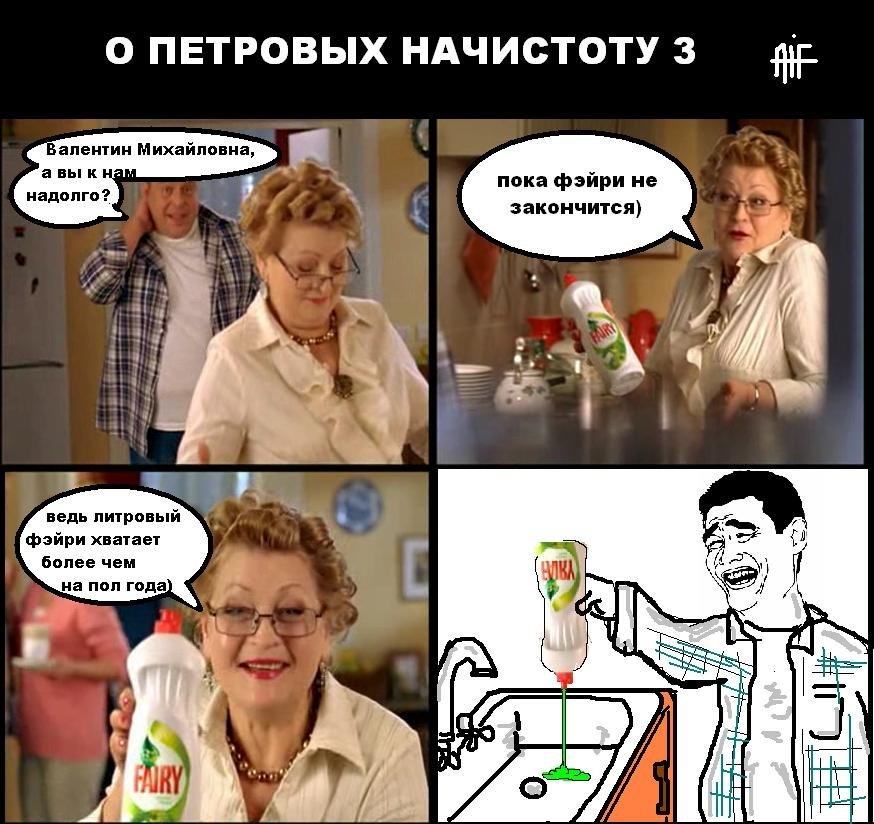What unites Yandex, Google, Burger King, Megafon, Alfa Bank, CNN, MaMa MiA pizzeria and Khabarovsk dental center? That's right, they were all held accountable by the Federal Antimonopoly Service for violation of the law on advertising. Last year alone, the service
examined 15,000 allegations of illegal advertising and issued 1,477 decisions imposing administrative fines totaling 78 million rubles.
Perhaps the main thing for every entrepreneur in the law "On Advertising" is that his violation entails administrative liability. The largest fines (up to 500,000 rubles) are provided for legal entities. Moreover, if you do not comply with the requirements of the FAS and do not correct the violations, the company will be fined again (from 300,000 to 500,000 rubles for legal entities).
Especially for novice advertisers, in my constant heading “Caution, FAS!” On the Rookee service blog, and more recently, here every month I look at the latest examples of unfair advertising. In this issue, I prepared a memo that helps to understand the main provisions of the Law "On Advertising" at practical tricks and not fall under FAS sanctions. I recommend saving and printing.
General rules
How not to:- use adjectives in superlatives: “best”, “most”, “most delicious”;
- write abstractly: “one of the best”;
- To allow incorrect comparison with competitors.
How to:The use of the words “best”, “first”, “number one” in advertising should be accompanied by an indication of the specific criterion by which the comparison is made. In addition, it must have objective confirmation. That is, if we write “one of the best,” then we additionally need to indicate a criterion documented by the data of a large-scale opinion poll or other analytics from a competent source.
Example No. 1:There are many examples of violations by Russian brands. One of the most recent is the admission of violation of the law “On Advertising” of Odintsovo Confectionery Factory LLC, the Korkunov chocolate products manufacturer. On June 20, 2019, the antimonopoly department commission established that the Brand No. 1 advertising statement was incorrect and mislead consumers, indicating the superiority of these products in comparison with other products.Example No. 2:Our advertisers love to boast, but conscious citizens do not sleep. In May of this year, one of those who make up the honor and conscience of the country complained of contextual advertising addressed to the FAS Russia.On request "reg. en »on Google the user saw the message:
On June 20, 2019, the antimonopoly department commission established that the Brand No. 1 advertising statement was incorrect and mislead consumers, indicating the superiority of these products in comparison with other products.Example No. 2:Our advertisers love to boast, but conscious citizens do not sleep. In May of this year, one of those who make up the honor and conscience of the country complained of contextual advertising addressed to the FAS Russia.On request "reg. en »on Google the user saw the message:
REG.RU | Registrar N1 in Russia <...> Domains in the zone. SITE with a discount of up to 67% ... "
According to the results of the proceedings, the FAS Russia recognized the advertisement of REG.RU Domain Name Registrar LLC as incorrect and demanded to eliminate the violation.
How not to:It is incorrect to compare the advertised goods with goods in circulation that are produced by other manufacturers or sold by other sellers.
Important!You can not negatively evaluate the goods of a competitor.
Example:"Invest-silicate-building services." Plant of silicate products. New brick. The level of radiation background is 2 times lower than that of ceramic. "
This statement cost Invest Silikat Stroyservis a fine of 100,000 rubles. The fact that the brick advertisement is “incorrect and violates the law” was indicated by the representatives of Vinzilinsky Ceramic Wall Materials Plant CJSC. They presented evidence that currently there are no official normative and methodological documents proving the approval of brick manufacturers.

You can not mislead the consumer, use inaccurate or distorted information.
In the example with a radiation background, the term itself is incorrect, because it includes a combination of various indicators and quantities.
Comparison based on disparate criteria or incomplete comparison of goods is not allowed, as this distorts the idea of the advertised product and does not allow an objective assessment of its properties.
For example, you cannot compare two similar products, but with different composition, properties and other differences.
A comparison is not allowed, in which the conclusion about the advantage of the advertised product is made on the basis of one criterion, while for the objectivity of such a conclusion, a comparison is necessary on the basis of a set of criteria.
Example:“Fairy is the best fat remover.” For an objective assessment of consumer properties, it is not enough just the speed of washing off fat.
Procter & Gamble fell under FAS sanctions precisely for this advertising slogan. Fairy complained about the ad in the face of the AOS brand owned by Nefis Cosmetics. Then a real brand war broke out.
Nefis claimed that it was AOS that was shown in Fairy ads, as there were no other detergents in the orange bottle with the blue cap on the market.
P&G operated on the results of its own tests, in which it referred to the rate of fat laundering.
An opponent represented by Nefis immediately carried out his own research together with the Ross NIIBH and NITSBYTHIM laundry detergents and detergents development center. The results showed that AOS launders more plates contaminated with the fat mixture.
As a result, the Federal Antimonopoly Service acknowledged that the statement “Fairy is the best fat remover in Russia” is not true.
 How to:
How to:We can write comparisons based on facts confirmed by sources.
Important!The comparison should be based on one criterion, without the formation of any negative to other products / services of competitors.
Documentary evidence of benefits is required.
How not to:Post information that does not correspond to reality about the advantages of the advertised product over goods manufactured by other manufacturers or sold by other sellers.
Use phrases that discredit the honor, dignity or business reputation of a person, including a competitor.
For example, you cannot write that a competing company will be declared bankrupt in the near future.Advertising that discredits persons who do not use any specific goods or services is also considered defamatory. For example, you cannot write that someone who does not use your services is acting stupidly, shortsighted.
Example:A detailed analysis of one of the latest examples of defamatory advertising is in the October issue of Caution FAS. In August 2019, the Federal Antimonopoly Service in the Republic of Tatarstan received an appeal on the fact of distributing advertisements degrading the honor and dignity of a woman.
FAS agreed with the applicant and the text of the advertising message:“Naked is true that our WAITRESS IS READY FOR MUCH for your smile” deliberately insults and humiliates representatives of this service sector, as it is “based on the exploitation of the sexuality of the female body”
 How not to:
How not to:Provide security guarantees using phrases like “absolutely safe”, “completely painless”.
If we are talking about security certificates (for example, official testing like Rostest), then you need to refer to them.
How to:One of the safest according to the results of such a study / survey.
Important!We always place a disclaimer about the presence of a contraindication and the need for consultation with a specialist (for medical services, medicines and dietary supplements). In order to understand, we recommend that you familiarize yourself with the
recommendations on compliance with the legislation on advertising over-the-counter medicines.
Try not to use the “high / low safety profile” characteristics (ambiguous wording).
How not to:Motivation to abandon a healthy life. Art. 5 Federal Law “On Advertising”: “In advertising, demonstrations of smoking and alcohol consumption are not allowed.”
In Art. 24 of the Federal Law "On Advertising" contains a ban on appealing to minors in the advertising of medicines, medical equipment, medical devices and medical services, including artificial termination of pregnancy.
Children's theme in advertising
In advertising is prohibited:
- discrediting parents and caregivers, undermining the confidence of minors in them;
- encouraging minors to persuade parents or others to purchase the advertised product;
- the creation in minors of a distorted idea of the availability of goods for families with any level of income;
- creating the impression among minors that the possession of the advertised goods puts them in a preferred position before their peers;
- the formation of an inferiority complex in minors who do not have the advertised goods;
- showing minors in dangerous situations, including inciting to commit actions that pose a threat to their life and (or) health, including causing harm to their health;
- (Clause 6 as amended by the Federal Law of July 21, 2011 N 252-FZ)
- underestimation of the level of skills necessary for using the advertised product in minors of the age group for which this product is intended;
- the formation in minors of an inferiority complex associated with their external unattractiveness.
- Sometimes an advertisement (for example, a spectacular event) requires an indication of the age limit in it.
Studying the basics of legal literacy, each company takes concrete steps to reduce risks for its business. My goal is to make it so that all people involved in the process of creating, selling and placing advertisements get into the habit of consciously paying attention to possible legal risks.
Read the digest of the most memorable unfair advertising in the opinion of the antimonopoly service in my previous issues of “Caution: FAS!” On the Rookee service blog.